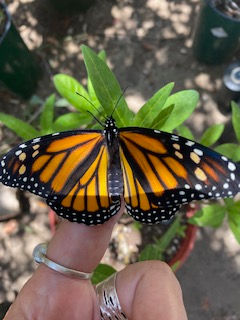Following the Wanderer’s Way: A Conversation with Susan Ackerman Joseph
- Racheal Hebert

- Aug 29, 2025
- 3 min read

In anticipation of her 3-day somatic healing retreat, A Wanderer’s Way: Sensing the Sage Within, we sat down with Susan Ackerman Joseph to learn more about her work, her inspiration, and what participants can expect from this immersive journey inward.
Q: What inspired the creation of A Wanderer’s Way?
Susan: The idea for A Wanderer’s Way emerged from my study and practice as an I Ching practitioner. The I Ching is an ancient Chinese divination system that was historically consulted by kings to guide decisions—whether to move forward, retreat, or shift attention. It has been adapted over thousands of years and continues to offer guidance in the modern world. My mother introduced me to this type of divination, alongside astrology, and I continue to consult it daily to guide my decisions and approach to the day.

One hexagram that frequently appears in my readings is Hexagram 56, “The Wanderer.” I resonate with the idea of being a wanderer on a journey toward inner truth. Life is a journey, and our inner wisdom—or “inner sage”—can guide our decisions and our responses to experiences. This workshop is designed to help participants cultivate a relationship with their inner knowing, learning to discern bodily sensations and translate them into guidance for their lives.
Q: What role does the body play in healing and self-discovery?
Susan: Our spirituality is intertwined with our humanity; you cannot separate the two. Yet, we live in a culture that often diminishes the body’s value while elevating the mind. This disconnection can prevent us from experiencing wholeness. The body can hold trauma, bracing, and shutdown, often as a response to pain or attachment wounds. In healing, we aim to restore a relationship with our bodies that, at its best, can be fully embraced and celebrated. Somatic practices provide tools to tend to the body, restore flow, and support overall well-being.
Q: For someone who has never done somatic work before, what might they experience during this weekend?
Susan: I hope participants discover their own inherent capacity for ease and resilience. Even acknowledging that your body has carried you this far is powerful. We’ll explore moments of softness, pockets of peace, and ways to notice and nurture that sense of flow. Trauma can inhibit our natural rhythms, leaving us stuck in one state. Through this work, we seek to restore movement—both physical and energetic—allowing systems to expand, contract, and return to natural flow. This principle connects directly to Daoist thought and the I Ching: life moves, and we are meant to move with it.
Q: Your work weaves together somatic practices, expressive arts, ancestral wisdom, and polyvagal theory. How can these elements benefit social workers and those in helping professions?
Susan: During the workshop, participants will experience specific exercises and practices that can be applied in clinical settings. These tools support nervous system regulation, helping clients become “unstuck” and move through physical and emotional blocks. Much of our time together is experiential, offering techniques that can enhance professional practice while deepening personal understanding.
Q: What inspires you to do this work?
Susan: The work itself is incredibly regulating and grounding for me. Supporting others in their wellness brings deep satisfaction and fulfillment. Co-regulation occurs naturally in these settings, and the relationship and shared experience reinforce why this work feels so meaningful.
Q: You’ve facilitated international retreats and conferences. What draws you to spaces like The Red Shoes?
Susan: People like you! The Red Shoes is a rare and special place. I live in Los Angeles, and I cannot find a place with as much heart and soul as The Red Shoes. Its supportive, curious, and heart-centered community makes it ideal for exploring personal growth and spiritual practice. The space itself encourages openness, connection, and intention, creating a container where deep exploration and learning can flourish.

Q: What brings you joy or restores you personally?
Susan: I have a monarch butterfly sanctuary where I plant milkweed to support caterpillars and butterflies on their journey. Caring for these creatures, one butterfly at a time, keeps me connected to the natural world and reminds me of transformation and resilience.
Join us for this rare opportunity to spend a weekend with Susan and a community of seekers, movers, and feelers.
Sept 26–28 at The Red Shoes
Registration includes meals + 10 CE hours for social workers.


Comments